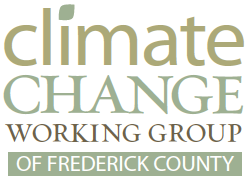 RESEARCH
RESEARCH
How does a global problem like climate change affect Frederick County? The Climate Change Working Group of Frederick County (CCWG) produces research papers on aspects of climate change that affect us locally. Energy was the topic of our first paper, which was made public in August of 2019, with an update in 2020. See both below. Papers on Water and Biodiversity/wildlife corridors are currently in the works.
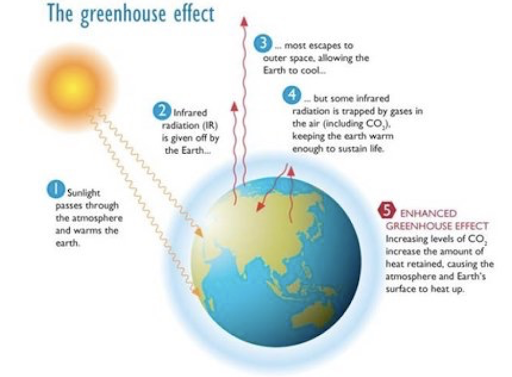
EDUCATION
In October of 2020, the CCWG held a free virtual workshop entitled Solar Power Options for Consumers for electricity consumers interested in renewable energy. Different options for purchasing renewable energy were described by a panel of experts. These included “electric choice” or the ability to purchase renewable power (as well as other types) through various companies listed on the Maryland Public Service Commission website, home solar panel installation, solar co-ops, and community solar. Delegate Lorig Charkoudian of Montgomery County discussed a fifth model, Community Choice Energy (CCE). Note that the Maryland General Assembly passed legislation in the 2021 session to allow Montgomery County to field a Community Choice Energy pilot program. Read more about CCE in the latest CCWG Energy Paper.
RESOURCES
The Climate Change Working Group online free library, begun in 2014, features information and weblinks to various documents and articles related to Climate Change. Access to articles in The New York Times, Washington Post and other publications may require a subscription to those publications; however, most of the information is easily accessible.
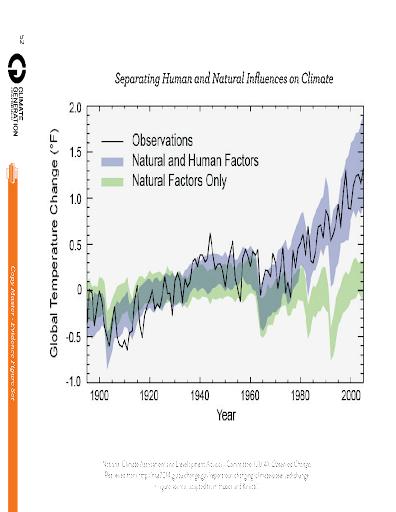
Here are a few notable resources on the local, national and international levels:
Maryland Commission on Climate Change
“During its 2015 session, the Maryland General Assembly codified the MCCC into law, officially charging the Commission on Climate Change with advising the Governor and General Assembly “on ways to mitigate the causes of, prepare for, and adapt to the consequences of climate change.” The MCCC is chaired by the Maryland Department of the Environment (MDE) Secretary Ben Grumbles and consists of members representing state agencies and the legislature, local government, business, environmental non-profit organizations, organized labor, philanthropic interests, and the State University system.”
https://mde.maryland.gov/programs/Air/ClimateChange/MCCC/Pages/Commission.aspx
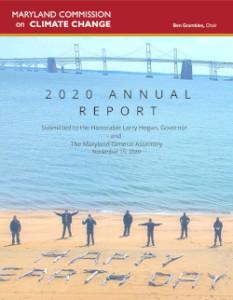
U.S. Global Change Research Program
“The U.S. Global Change Research Program (USGCRP) is a federal program mandated by Congress to coordinate federal research and investments in understanding the forces shaping the global environment, both human and natural, and their impacts on society. USGCRP facilitates collaboration and cooperation across its 13 federal member agencies to advance understanding of the changing Earth system and maximize efficiencies in federal global change research.” The Global Change Research Program produces National Climate Assessments (see below).
Fourth National Climate Assessment
https://nca2018.globalchange.gov/
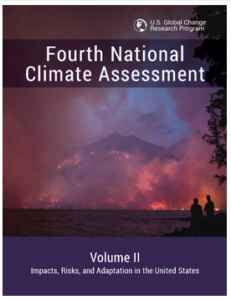
The National Climate Assessment assesses the science of climate change and variability and its impacts across the United States, now and throughout this century. Below is a power point presentation on the Northeast (chapter 18) of the report. Note the use of the acronym RCP, which stands for Representative Concentration Pathway. The Intergovernmental Panel on Climate Change projects the impacts of climate change based on various scenarios of greenhouse gas concentrations in the atmosphere (RCP2.6, RCP4.5, RCP6, RCP 8.5), with 2.6 representing the most optimistic scenario and 8.5 representing the most pessimistic scenario. The graph below shows the projections, with the black line representing the actual observed temperature increase. Read more on Wikipedia.
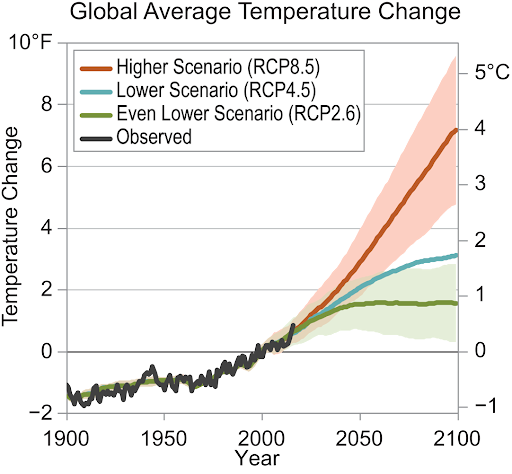
Intergovernmental Panel on Climate Change (IPCC)
“The IPCC is the United Nations body that provides regular assessments of the scientific basis of climate change, its impacts and future risks, and options for adaptation and mitigation. It was created in 1988 by the World Meteorological Organization (WMO) and the United Nations Environment Programme (UNEP). The objective of the IPCC is to provide governments at all levels with scientific information that they can use to develop climate policies.”
Read more here: https://www.ipcc.ch/.

26th Conference of the Parties (COP26): October 31 – November 12, 2021
The Intergovernmental Panel on Climate Change (IPCC) took part in the 26th Conference of the Parties (COP26) organized by the United Nations Framework Convention on Climate Change (UNFCCC) in Glasgow, Scotland. More information and outcomes can be found here:
https://unfccc.int/conference/glasgow-climate-change-conference-october-november-2021
United Nations Environmental Programme (UNEP) report “Making Peace with Nature: A scientific blueprint to tackle the climate, biodiversity and pollution emergencies”
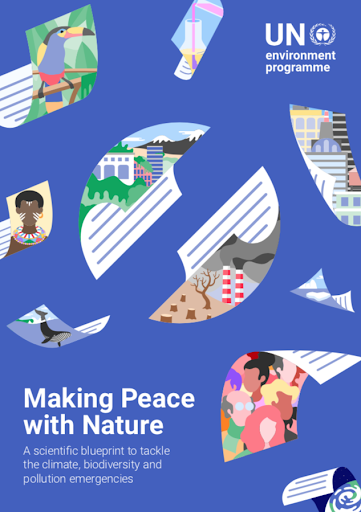
In his introduction to this 2021 report, UN Secretary General António Guterres writes, “Humanity is waging war on nature. This is senseless and suicidal. The consequences of our recklessness are already apparent in human suffering, towering economic losses and the accelerating erosion of life on Earth. Ending our war does not mean surrendering hard-won development gains. Nor does it cancel the rightful aspiration of poorer nations and people to enjoy better living standards. On the contrary, making peace with nature, securing its health and building on the critical and undervalued benefits that it provides are key to a prosperous and sustainable future for all.”
UNEP Executive Director Inger Andersen writes, “Loss of biodiversity and ecosystem integrity, together with climate change and pollution will undermine our efforts on 80 percent of assessed Sustainable Development Goals Targets, making it even more difficult to report progress on poverty reduction, hunger, health, water, cities and climate.”
Read the report here: https://www.unep.org/resources/making-peace-nature